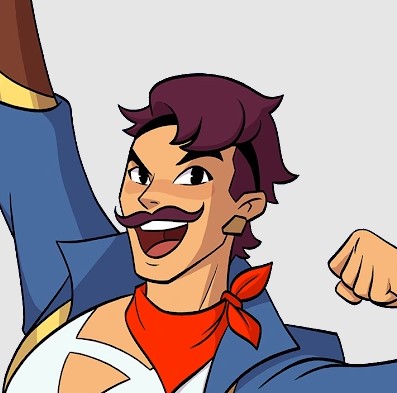Yesterday I started looking into trans acceptance and understanding in china. I came across articles about Jin Xing, china first trans clinic for minors (opened in 2021), China’s laws regarding obtaining HRT or GRS (mostly western sources), searched Bilibili and Baidu (videos) using the terms 同志, 變性 and 跨性别 combing through the comments. Finally looking through the stories of trans people who visited or worked in china.
I was surprised to find lots of roadblocks for trans people attempting to get HRT, GRS, change there paperwork etc. For example if you want to obtain HRT in china as a trans women you must notify your family, get written acceptance, prove you have no criminal record and undergo psychological treatment. This leads to a lot of trans people getting HRT online. However as of 2022 estradiol and cyproterone where added to a list making it illegal to obtain online.
The comment sections of videos on the topic are pretty bad id say similar to transphobic comments left in videos in America. The stories of non passing trans people who traveled to china getting mocked, belittled or in some cases having the police called on them. All of this shocked me and due to the language barrier I attempted to look past some of the comments or dismiss some of the horror stories.
It appears to me that china is severely behind on Trans acceptance and that’s why I’d like to open this up as a discussion on the matter as I am only one person who understands little mandarin or other Chinese dialects and would greatly appreciate any information on the matter.
sadly, that is one of the weakpoints of china, the misogyny and lgbtfobia left by colonization is still very present, personally i don’t think there is a excuse to not advanced in that point, so it is fair to criticize heavily, especially when they had a starting point of acceptance, i.e the gay god in taiosm religion.
cuba being in a very tough spot and starting as a deeply misogynist and homophobic country, today have one the most advanced legislation in the world
Hopefully in the future they will take some inspo from cuba regarding LGBTQ rights, thanks for the info!
It will happen only very slowly, because China is huge with a vast rural population and the government will not force faster cultural change in a way that leaves people thinking they’re being pushed into accepting ideals they don’t want, no matter how wrong those people may be.
It’s going to happen generationally, via schools and media teaching each successive generation to be more accepting.
But on the bright side what that means is we won’t see massive reactionary surges repealing progressive laws like we’re currently seeing recently over trans rights in Florida or Roe v Wade across the U.S.
When China steps forward on progressive issues they might only be small infrequent steps, but it’s the whole country stepping forward and there will be no stepping back.
It’s frustrating when you compare it to Western standards, but when you consider that most of China are culturally conservative, the progressive movement is doing quite well for itself.
deleted by creator
There isn’t really ‘human rights’ so much as ‘human needs’. People need to eat, and a government declaring in its constitution that people have the right to food doesn’t validate that need any more than saying they don’t have the right to food doesn’t mean they don’t need it. That’s a cultural and ideological difference that’s worth pointing out because liberals will say ‘China literally has no human rights’ as a gotcha when it’s really just a technicality.
Another way to put it:
-
People have needs. Usually an unfulfilled need means death or unacceptable suffering.
-
Liberal democratic governments bestow human rights on individuals to validate people’s needs, prohibiting themselves or anyone else from denying people those needs.
-
Democratic Centralism (or at least China specifically) bestows responsibilities on organs of government to ensure people’s needs are met, requiring organs of government to provide for those needs.
So when you talk about someone’s rights, that’s things like the right to farm a certain plot of land, the right to build a house in your ancestral village, the right to demand a refund for a defective product. Meanwhile food, healthcare, shelter, life, liberty, pursuit of happiness are all needs, and when governments declare people have the ‘right’ to their needs, they’re just creating an extra layer of rhetorical complexity that allows them to avoid taking responsibility.
Sorry for such a long tangent to your question; I just really wanted to point out that technicality. But yeah so taking your question to mean the needs of the poor rather than their rights, China has improved tremendously from the poverty alleiviation scheme. Being out as queer is trickier though, because the organ of government responsible for a lot of your needs is your home province, while as a queer person you almost definitely want to be living in the cities. Unless your home province is actually one of the cities, you’re kind of under pressure not to rely on the state for help.
Thank you for the thoughtful comment.
deleted by creator
As far as pressure to not rely on the state, where does that pressure come from?
If you’re queer in China you want to live in one of the cities, because the queer culture is there; it’s more tolerant. Far more tolerant than the very conservative culture in most rural areas.
So if you’re born in the countryside or a small town but want to live in a city like Shanghai, you need to find a job in Shanghai and then pay rent for your accomodation in Shanghai - which is expensive. But pursuing a career in the city away from your hometown and family is very much an ‘opt-in’ thing. You’ve got to do it by yourself.
If things go badly for you and you want to fall back on the social safety nets in place for you… those are in your hometown. The government will set you up with cheap housing and find you a job and vocational training if you need it and do an amazing job at getting you off rock bottom and back into a place where you’re mentally, physically and financially capable of looking after yourself again.
But if the reason you left home is because you’re queer and wanted to be in a community where you could be out, you essentially have to get back in the closet when you go home. You have to give up on that city community. That’s a huge deterrent.
Of course it’s important not to generalize the whole of rural China as an equivalent to the US bible belt. It’s a massive, extremely culturally diverse country.
-
Is there an urban/rural divide as well as a generational one?
Yes.
LGBTQ+ people tend to try to start lives in the cities, where prevailing attitudes are more progressive, where there’s a LGBTQ community and where there’s better surveilance (which means more safety). You also improve your chances of getting signed off on sex reassignment or gender affirming surgeries if you’re trans living in the cities, because the mental health impact of the social fallout from how your community will receive your change is a far smaller concern or eliminated entirely, and your family is less worried about getting stigmatized by their community (which is something that will affect them whether they support you or not) if nobody actually knows because you live far away and never visit home.
you are welcome, comrade. fight for lgbtq rights and not it let get highjacked by liberal ideology should the duty of every communist.
As an ethically chinese person and someone who wholeheartedly supports the CPC,
many Chinese are extremely socially conservative. It’s a miracle the CPC has done anything at all with the sheer amount of straight-out conservatism that’s prevalent. Just look at all the people who are worried about ‘Western Wokeness’.
ethically Chinese
I know what you meant, I just found this very funny.
Yeah lol, just wanted to clarify I’m living in burgerland. I’ve been to China once or twice and it’s a super nice place.
nah nah like Ethical Chinese, as opposed to the unethically Chinese
But mah ughighgyhurs
You can’t really attribute this to conservatism when traditional Chinese values are generally much more accepting of trans[2] and gay people[1] than their western counterparts. It’s similar to the situation in India where westerners spread their homophobic ideals through their colonies and in the modern day through their media power, and we get the blame for it. Bilibili and Baidu comments are generally made up of xenophile liberals (they have polandball videos on bilibili for pete’s sake). Although I will admit casual transphobia was pretty common at least circa 2010s.
[1] https://en.wikipedia.org/wiki/Emperor_Ai_of_Han#The_rise_of_Dong_Xian
MLM relationships generally didn't carry a stigma in ancient times. I can't really cite anything on attitudes towards other LGBTQ+ peoplethough.
[2] https://en.wikipedia.org/wiki/Jin_Xing
This is more recent but she's a trans celebrity widely loved by boomers.
deleted by creator
ive just watched the whole thing, it was beautiful
thanks for posting :)
Thanks for sharing, I was looking for this doc but kept running into dead links.
The sentiment seems to vary quite a bit based on which platform you’re on. While scrolling Douyin (tik tok) I saw lots of pro-LGBT content and openly homosexual couples, lots of pride flags and so on (this compilation includes some of that). I also looked up the Baidu Baike articles on 跨性别 and 同性恋, and I thought they were really good. When it comes to state media, they also made some documentaries showing the LGBT community in a positive light. I also found this SCMP article quite insightful. Of course, we also shouldn’t forget that China has the world’s biggest gay dating app: Blued.
deleted by creator
YES!!! this is exactly the type of data I was looking for ty!!
First I wanted to thank everyone for contributing to this discussion, rather then reply to several comments individually I figure it might be a better idea to address the most common ones in one post.
1.) Referencing gay or bi people in China as an example when talking about trans acceptance.
Gender identity vs sexual orientation are very different groups with there own needs, using the latter or the former to discuss needs of the former or latter is a grave misunderstanding of those needs and the people involved.
2.) The use of the initialism LGBTQ by Chinese media and in some of the responses to this thread
The initialism is very much historically a western invention, activists started using the initialism “LGBT” in 1988 [1] followed by general acceptance in 1990 [2]. Despite china having vastly different culture as pointed out by some of you in this thread they have also chosen to use western initialism [3].
3.) America and the west is no shining beacon of trans rights or acceptance, in most cases china’s transgender population face no legal discrimination in comparison.
With over 80 anti trans bills passed into law and over 500 bills currently in session leading to the criminalizing of trans people in the US [4]. In conjunction with the messaging from the far right reactionary republican party in America calling for the eradication of trans people [5]. In contrast to the west China has very little anti trans laws, however adding common M2F HRT to the restricted drugs list is just another road block for trans people in china.
4.) Trans people in China the cultural differences and the struggle for global trans liberation.
A majority of trans people in China do not have the support of family, friends and society often leading to violence towards them from their own family (even though these attitudes are slowly changing) [3]. As well as alienation from uprooting there entire lives to move to bigger and more accepting cities. I really would like to stress the importance of the acceptance of your friends, family and society when your trans as its been tied to high rates of attempted suicide time and time again [6]. Easy/legal access to HRT in China is extremely difficult and as of 2022 online access to MTF HRT in particular is illegal [3] [7] [8].
I urge everyone of you to thoroughly examine the dangers of ignoring the material conditions that shape trans people’s lives regardless of the customs/cultural differences.
- [1] https://web.archive.org/web/20190619085339/https://books.google.com/books?id=PiglAQAAIAAJ
- [2] https://books.google.com/books?id=2SOe4igsrbgC
- [3] https://news.cgtn.com/news/3d67544e3230575a306c5562684a335a764a4855/share_p.html
- https://youtu.be/NFarMuDa6GQ
- https://youtu.be/doAh4ZhGhsY
- [4] https://translegislation.com/
- [5] https://www.youtube.com/watch?v=pU9y9dcM5NQ
- [6] https://pubmed.ncbi.nlm.nih.gov/30699856/
- https://publications.aap.org/pediatrics/article/142/4/e20174218/76767/Transgender-Adolescent-Suicide-Behavior
- https://pubmed.ncbi.nlm.nih.gov/32345113/
- https://pubmed.ncbi.nlm.nih.gov/32250142/
- [7] https://pubmed.ncbi.nlm.nih.gov/30902476/
- [8] https://www.nmpa.gov.cn/xxgk/zhqyj/zhqyjyp/20221103155815144.html (edit: formatting)
Ooooh hell yea… China is still very culturally conservative. It reminds me of the youtuber CaptainCool07, even though he lives in San Fransisco. While he makes videos that give pretty decent insight into Chinese politics and history, his other content are however straight up lgbtphobic… talking about “wokism,” “family values,” etc. Bear in mind, this guy has also stated that he is not a communist/socialist, even though some of his content may appeal to MLs.
Diaspora really isn’t reflective of the culture in China. In CaptainCool07’s case he got drawn into the conservative side of US culture wars simply because many “progressive” polices and politicians (especially in San Francisco) openly discriminate against Asians.
The traditional Chinese position on LGBTQ+ was generally more progressive than the standard liberal position up until the 2000s. For example negativity towards homosexual relations didn’t really exist until westernization in the 19th century on[1]. In regards to trans issues it seems that like in many cultures there just wasn’t a conception of trans people, but at the minimum crossdressing had no stigma[2]. Personally I don’t think hostility towards western values is unfounded when it was western values that introduced homophobia in the first place. As a someone who is Bi I personally think arguments that appeals to traditional values or marxism are going to be much more effective than reusing western liberal idpol rhetoric.
[1] https://en.wikipedia.org/wiki/LGBT_rights_in_China
[2] https://en.wikipedia.org/wiki/Transgender_people_in_China#Cross_dressing_in_Peking_Opera
I don’t see any reason to expect better from a totalitarian country. Totalitarianism thrives on suppressing minorities
We’re talking about China, not the USA.
Whatever the USA has done doesn’t make China’s record any better
The only totalitarian country in here is the USA, it’s not China.
Nazi Germany wasn’t totalitarian?
Do you feel as if this comment adds anything meaningful to the discussion? All I can gather is you view china as totalitarian.
(edit: i guess there comment was deleted lol)That’s true, it’s more of a comment discussing the point of the discussion as such. Trans people are a minority who’s rights democratic governments are being pushed to respect. If a government like the Chinese doesn’t even respect rights of the majority (such as the right to free speech), I don’t think there’s any point holding our breath waiting for them to respect the rights of the trans community, unfortunately.
And also understand that China is in a different sphere of cultural and ideological development with relation to the productive forces, having emerged only less than a century ago from semi-feudalism and colonial subjugation (and remember that the West perpetuates underdevelopment and backwardness in many countries). Many views will be incorrect because they represent the interests of a backward level of development, but this is not an indictment against the “totalitarian” CPC, which as a vanguard party is tasked with “telling the hard truth” and comprising itself of the politically advanced. See the few progressive documentaries on LGBT (especially trans) issues in China produced by CGTN (state media), which also address the issue of intolerance:
I’m not sure why but the first link wont open, I did watch “a day of trans” and the CGTN doc you linked and gained additional insight, thank you for sharing.
The first link is to a paper by Domenico Losurdo titled, “Towards a Critique of the Category of Totalitarianism” (since I was responding to a comment which used this term as a category of government including China destined to oppress minorities). I included a temporary PDF link, but you can find it online pretty easily.














